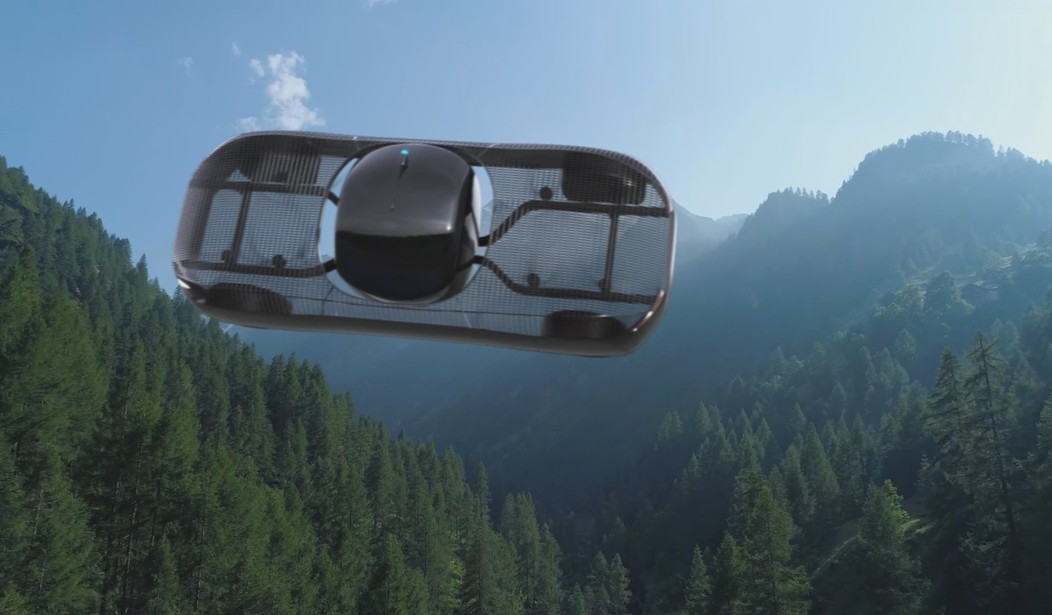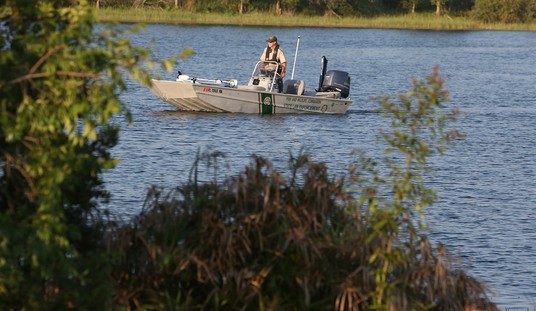A California (of course) company named Alef Aeronautics has revealed its Model A flying car at the Detroit Auto Show.
The world’s first flying car made its grand debut Monday at the Detroit Auto Show — wowing crowds just two months after gaining legal approval.
California-based Alef Aeronautics unveiled its swanky Model A prototype, which closely resembles a standard sedan except for its UFO-esque bubble-like seating area big enough to fit two passengers with an affinity for soaring.
The history-making vehicle was not flown at the annual event — Alef is still roughly two years away from starting production on the first flyable car.
“It’s still not the final consumer version,” founder and CEO Jim Dukhovny told Robb Report.
“But at this point, it’s pretty close.”
This is an electric vehicle. What happens if a driver is airborne with no safe landing place nearby and the battery runs out?
Allow me to offer a prediction: There won't be a final consumer version of this or any other flying car. This idea, should it even prove possible to enter mass production, will be regulated out of existence.
Oh, sure, the Federal Aviation Administration (FAA) is allowing it to be tested, out to the limits of its rather short range:
The flying car was awarded a Special Airworthiness Certification from the Federal Aviation Administration in June, meaning the company will be allowed to test it on both the road and in the air.
Dukhovny, whose father was famous musician and poet Leonid Dukhovny, originally imagined that the flying car could help save time wasted in traffic, but said, “Every time I talk to somebody, people come up with new use cases.”
The fully electric vehicle can be driven up to 200 miles on public roads, but it can also launch vertically into the air with a flying range of 110 miles.
I may be wrong in this prediction; after all, predictions are difficult to make, especially when they're about the future. However, we've already seen enough problems with ground-bound electric cars and the problems involved in finding charging stations for long trips unless you're a Biden Administration official. Add the problem with people buzzing around in airspace currently only occupied by civil aviation, well, the FAA may allow testing, but a commercially produced flying car is a level of freedom that the Federal government won't allow. Add to that the fact that this is piling one uncertain technology on top of another, and it's hard to see it working out.
It's curious to see a company putting any capital into this. Should they approach the point of production and commercial sale, the FAA will surely step in. They won't be subsidized like ground-bound electric cars, and if the FAA allows them to leave the ground, I can't see that happening without them being regulated at or near the same level as a Piper SuperCub taking off from a local airport. These may - just may - rise to the level of a wealthy person's toy, but that's all.
Interestingly, an Ohio company is also developing a flying taxi. This is something that might actually happen, as they are presumably going to be operated by trained and licensed personnel. We all know how much the various levels of government love licensing and certification; we live in a nation, after all, where many localities require certification for something as picayune as applying fingernail polish.
There's no way on earth that cities, states, or the FAA will allow the peasantry to fly around unchecked and unregulated.
George Jetson (who, rumor has it, was just born in 2022) was unavailable for comment.














Join the conversation as a VIP Member